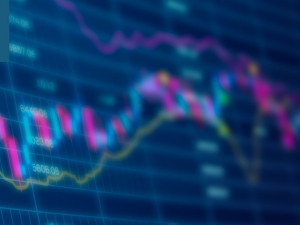
Is the election “Referendum II?”
Morning mid-market rates – The majors
12th November: Highlights
- Johnson – “only a conservative majority will see a January Brexit”
- Fed – On hold but the cycle not yet over
- Eurozone manufacturing downturn could “spill over”
UK Growth “slowest in a decade”
With the benefit of hindsight, yesterday’s data was alluded to by the MPC when it met last week. There is no doubt that the economy has suffered from three years of wrangling over Brexit with investment being reduced as business awaits an outcome of Parliamentary deliberations.
Growth was a long way from spectacular and is unlikely to improve over the next nine quarters but that is by no means unique to the UK which will suffer, as others are bound to, from a more protectionist world.
In “election world”, Boris Johnson the outgoing (as far as the lame duck Parliament is concerned) Prime Minister received what will be seen as a boost from an unlikely source as UKIP Party leader, Nigel Farage, (apparently) out of the blue, announced that his Party would not contest any of the 317 seats won by the Conservatives at the 2017 election.
Farage’s reasoning is that since those 2017 seats have Conservative MP’s currently UKIP will contest seats where the current MP comes from a Party that either favours remaining in the EU or a second referendum.
The pound steadied following Friday’s quite lively session, trading between 1.2785 and 1.2898 versus the dollar, closing at 1.2852.
Considering your next transfer? Log in to compare live quotes today.
Number of imponderables make direction hard to plot
Trump said last Saturday that talks were “moving along very nicely but a deal will only get done if it is good for America”. It’s certain that a little searching online would find the same comment from the Chinese side with the only change being the insertion of China and removal of America!
With no real pressure on the negotiators to get a deal done and both sides content to be talking, seeing even that as something of an achievement, the entire process has started to lose the interest of financial markets who will soon move onto the next major driver.
The issue for traders at this time of year is that with year-end approaching and protection of what they have becoming the most important criteria. They may have to wait until 2020 for any significant volatility to return.
The Fed’s recent pronouncements have fallen into the same category, whether intentionally or not. Jerome Powell’s press conference following the most recent FOMC meeting was very much an exercise in wait and see. Powell’s Fed has been pressed into action, seemingly against its will, by pressure from the Administration to act to provide a certain amount of stimulus to the economy although their recent cuts could backfire if inflation, due for release this week, starts to pick up.
Overall, the dollar has entered a period of consolidation as it becomes reactive to other G7 issues. Traders will be content to also be reactive to market forces for the next six weeks or so, content to regroup and assess the relative strengths of the major economies as we enter 2020.
Yesterday, the dollar index fell to a low of 98.13, closing just above support at 98.21.
Supply chain issues to come from lack of manufacturing growth
Yesterday, Yves Mersche, Luxembourg’s representative on the General Council of the ECB voiced his concerns that the continued poor output data that has been seen could bring issues to other areas of the Eurozone economy. Since the region is “set up” to be an industrial and manufacturing giant in global terms, the effect of the slowdown on the entire economy could manifest itself in many ways. Primarily, the number of businesses ancillary to manufacturing will suffer if the economy fails to pick up soon. While unemployment has so far been reasonably constant, it is possible that businesses in more socially responsible nations are living off reserves built up for just such reasons rather than start to lay off workers which is often the start of a slippery slope.
The ECB has cut its forecasts for growth several times in 2019. The latest release sees growth at just 1.1% this year. This is 0.6% lower than they estimated in December last year. It is hard to understand when there will be a pickup in activity to something close to trend growth with an estimate of just 1.2% for next year. This does not compare well to the rest of the G7 and is another indication of the fact that the issues the region faces are systemic and that the work on radical changes to the growth and stability pact as well as a more unified fiscal approach become ever more vital.
Yesterday, the euro rallied a little from its recent lows, reaching a high of 1.1044 and closing at 1.1032.

About Alan Hill
Alan has been involved in the FX market for more than 25 years and brings a wealth of experience to his content. His knowledge has been gained while trading through some of the most volatile periods of recent history. His commentary relies on an understanding of past events and how they will affect future market performance.”



